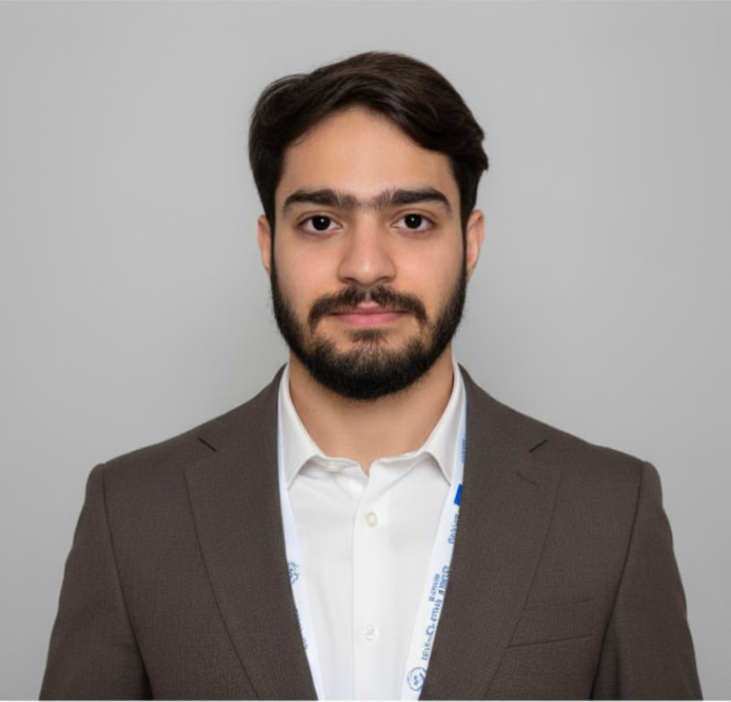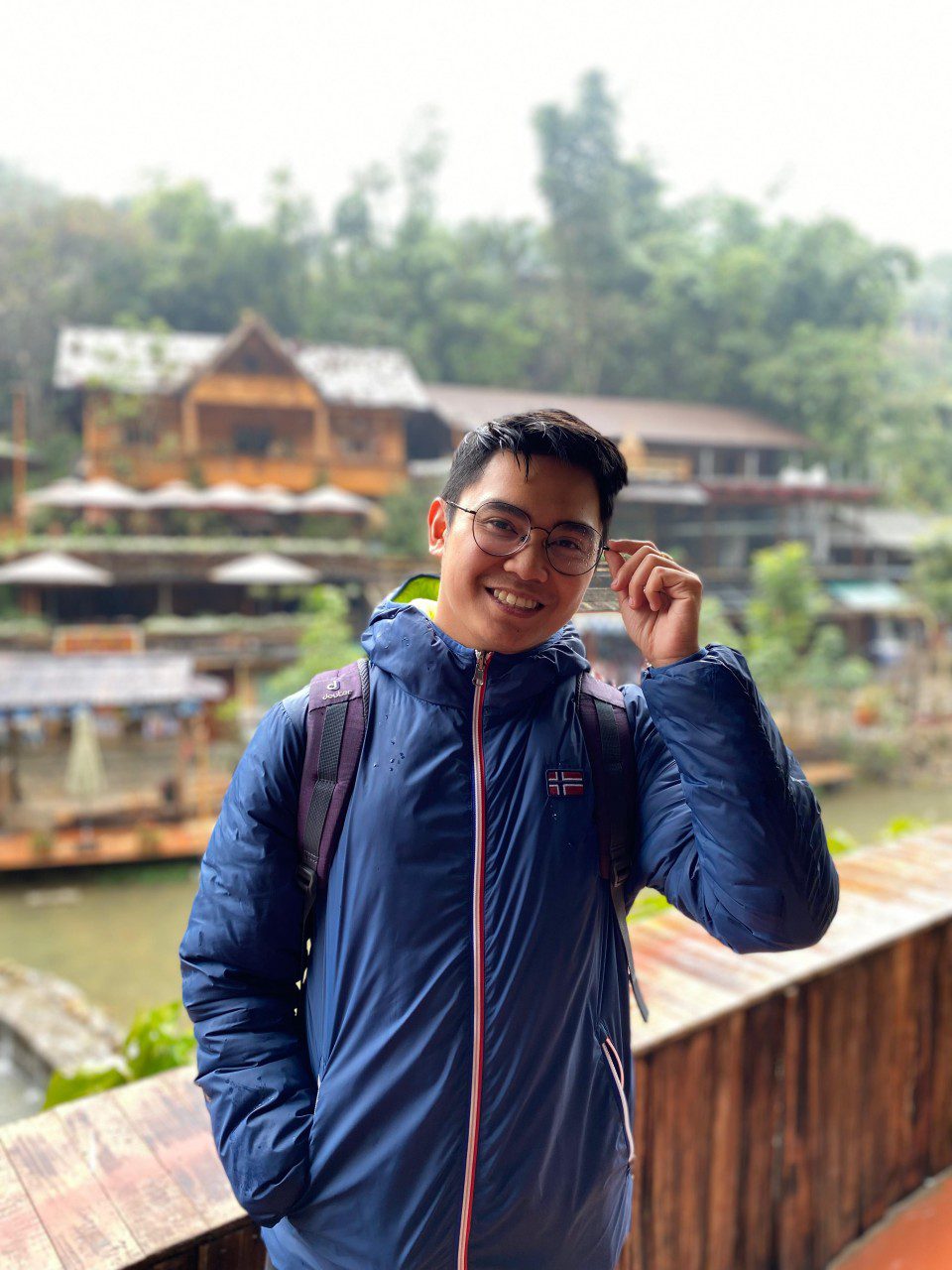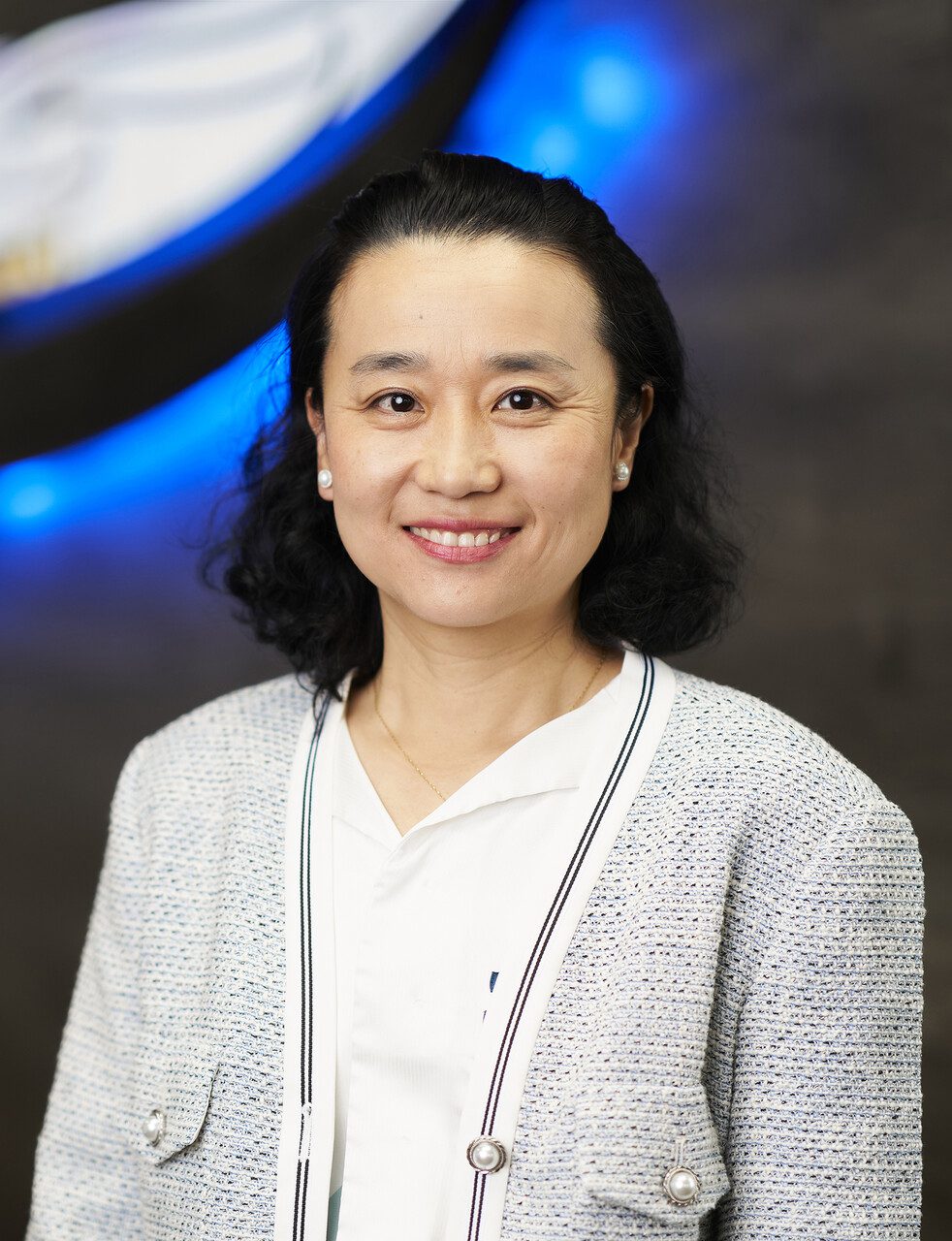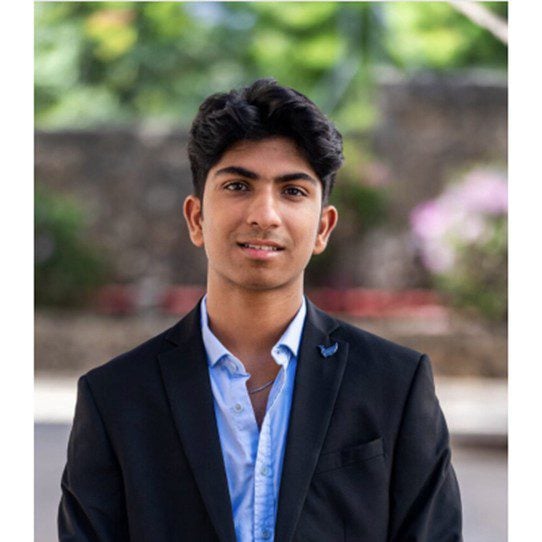Finland Government Scholar, Muhammad Hafas Shafiq from Pakistan, Pursues the European Mining Course (EMC) Master’s Program Across Aalto University, RWTH Aachen University, and Montanuniversität Leoben
University: Aalto University (Finland), RWTH Aachen University (Germany), and Montanuniversität Leoben (Austria)
Degree: Master’s in European Mining Course (EMC)
Previous Education: Bachelor of Science in Mining Engineering, University of Engineering and Technology (UET) Lahore, Pakistan
Scholarship: Finland Government Scholarship – Fully Funded (100% tuition waiver, mobility grant, and semester stipends for living and travel expenses)
Other Offered Scholarships (if any): 50% scholarships from the University of Oulu and the University of Helsinki
Social Media

The Journey
My name is Muhammad Hafas Shafiq, and I am originally from Multan, Pakistan. I am currently pursuing my master’s degree in the European Mining Course (EMC), A prestigious joint program between Aalto University (Finland), RWTH Aachen University (Germany), and Montanuniversität Leoben (Austria). My academic and professional journey has always been driven by a passion for sustainable mining, mineral processing, and critical raw materials recovery. I chose to specialize in this field because I believe responsible resource development is key to ensuring the world’s transition to renewable and technologically advanced societies.
Finland Government Scholarship Details
I was awarded the Finland Government Scholarship, along with a 100% tuition fee waiver for my studies in the European Mining Course (EMC). The scholarship not only covered my academic expenses but also allowed me to focus entirely on developing my technical expertise and advancing my career. In addition, I received a mobility grant to support travel between partner universities and a semester stipend for living expenses at each study location.
Were You Offered Any Other Scholarships?
Yes, I was also admitted to the University of Oulu and the University of Helsinki, where I was offered a 50% scholarship. However, I would have had to cover the remaining tuition fees and living expenses on my own.
Educational Background
I hold a Bachelor of Science in Mining Engineering from the University of Engineering and Technology (UET) Lahore, Pakistan, where I graduated with strong academic standing and a deep interest in extractive metallurgy and mineral processing. My undergraduate thesis on rare earth element extraction using green solvents helped build the foundation for my master's-level research in advanced critical mineral recovery technologies.
How Did You Prepare to Apply to Institutions?
Before applying, I researched leading programs in Europe and Australia that offered interdisciplinary exposure to mining, sustainability, and process engineering. I carefully prepared my Statement of Purpose, recommendation letters, and academic portfolio, tailoring each to highlight both my research background and my motivation to contribute to the global transition toward sustainable mining. I would also like to express my gratitude to my final-year project supervisor, Dr. Muhammad Badar Hayat, who continuously guided and supported me throughout the entire process.
How Did You Find Information About Scholarships and Institutions?
My main priority was to get enrolled in a Mining Engineering or Mineral Processing master’s program. While exploring and applying for different programs, I came across this one. I discovered the European Mining Course (EMC) through the Erasmus Mundus and EIT Raw Materials platforms, which list globally recognized programs. Information about the Finland Government Scholarship was available on Aalto University’s admissions portal and through international student groups. I also reached out to previous EMC alumni on LinkedIn to learn more about the selection process and their experiences.
Did You Take Any Standardized Tests (IELTS/TOEFL, etc.)?
Yes, I took the IELTS exam to demonstrate English proficiency, for which I prepared independently by practicing past papers and improving my writing and speaking through mock interviews and reading technical articles.
How Did You Prepare to Apply for the Finland Government Scholarship?
I spent a lot of time writing a clear and honest motivation letter that showed how my goals matched the scholarship’s focus on innovation, sustainability, and the circular economy in mining. I explained my research experience and leadership roles, and how I want to apply what I learn to improve mining practices in developing regions.
Before applying, I also talked with different alumni who shared their experiences and gave me valuable advice on how to make my application stronger. Their feedback helped me understand what the program expects and how to present my motivation more effectively. Learning from their journeys gave me confidence and a clearer idea of how to connect my background with the goals of the program.
How Is/Was Your Experience at the Institution?
My experience in the European Mining Course has been truly transformative. Studying across three leading European universities has exposed me to diverse mining cultures, technologies, and research environments.
During my winter semester at Aalto University, Finland, I was introduced to the Scandinavian academic style, which emphasizes teamwork, innovation, and sustainability. The learning environment was supportive and flexible, making it easier to adapt. I also enjoyed the unique Finnish traditions such as sauna evenings and student gatherings, which helped build a strong sense of community among international students.
At RWTH Aachen University, Germany, the focus shifted toward technical depth and academic rigor. The coursework was demanding, with a strong emphasis on precision, engineering calculations, and theoretical understanding. While the studies were challenging, they greatly enhanced my problem-solving and analytical skills. Experiencing Aachen’s strong industrial connections and its historical mining culture added immense professional value.
I am currently completing my third semester at Montanuniversität Leoben, Austria, where I am experiencing a balance between applied research and traditional mining engineering values. The environment here is highly collaborative, with close interaction between students, professors, and industry partners. Austrian traditions, such as student mining guilds and technical excursions, reflect a deep respect for the mining heritage, making the experience both culturally and academically enriching.
Through this journey, I have gained hands-on experience in laboratory-scale flotation, roasting, leaching, and solvent extraction, while also developing a broader perspective on how mining and metallurgical practices vary across Europe.
How Do You Rate the Institution Academically and Why?
I would rate the institutions in the European Mining Course (EMC) as academically excellent. The academic level is exceptionally high, and the program combines world-class teaching, strong industrial partnerships, and real-life problem-solving, effectively bridging the gap between theory and practice. Each semester builds upon advanced technical and management skills, preparing students for future leadership roles in the mining and resource industries.
At Aalto University (Finland), the academic environment is modern, flexible, and innovation-driven. The teaching approach emphasizes sustainability, teamwork, and creative problem-solving, making it an ideal foundation for the program.
RWTH Aachen University (Germany) offers a more rigorous and technically intensive experience. The courses focus deeply on engineering fundamentals, research excellence, and industrial applications, which helped me develop strong analytical and problem-solving capabilities.
At Montanuniversität Leoben (Austria), the focus is on applied research, hands-on learning, and close collaboration with industry. The university’s strong mining traditions and professional community create a highly engaging and supportive learning environment.
Overall, the EMC provides a rare opportunity to experience diverse academic systems, research cultures, and industrial practices across Europe—making it a truly world-class program for aspiring professionals in the mining and metallurgical fields.
How Does the Institution Support International Students?
All three partner universities in the European Mining Course (EMC) provide outstanding support for international students, ensuring both academic success and personal well-being throughout the mobility program. Each institution offers comprehensive assistance — including visa guidance, housing arrangements, orientation sessions, counseling services, and academic tutoring — which makes transitions between countries smooth and stress-free.
The EMC consortium itself plays a key coordinating role by managing logistics, academic schedules, and administrative support across Finland, Germany, and Austria. This structured coordination ensures that students remain focused on learning rather than bureaucratic challenges.
Financially, the Finland Government Scholarship and the Erasmus+ mobility grant provide essential stability during the program. Students also receive semester stipends during mobility periods, often by engaging in internships with FEMP partner companies, which enhance practical industry experience. During academic breaks, students are also allowed to take part-time or odd jobs, further supporting their living expenses. A major portion of the financial support comes from mobility funding, which covers travel and living costs, allowing students to fully concentrate on their studies and professional development.
Overall, the EMC institutions demonstrate exceptional commitment to international student welfare, combining academic excellence with strong administrative, cultural, and financial support throughout Europe.
Are Your Classes Conducted in English or Finnish/German?
All classes in the European Mining Course (EMC) are conducted entirely in English, which is an excellent aspect of the program. The universities do not require students to learn the local language, allowing international participants to focus fully on their academic and professional development.
At the same time, students are encouraged to explore the local culture and languages voluntarily, which enriches the overall experience. Professors and staff communicate fluently in English and provide constructive feedback, helping students grow academically and personally. The teaching environment is open and interactive, where asking questions and engaging in discussions are strongly encouraged.
This English-based, inclusive academic structure makes it easy for international students to adapt, participate confidently, and develop essential communication and career-building skills across all three universities.
Would Potential Students Have Any Problems Academically, Not Knowing Finnish/German?
Not at all. Since all courses in the European Mining Course (EMC) are taught entirely in English, potential students will face no academic difficulties if they do not know the native languages of Finland, Germany, or Austria.
All participants are master’s-level students who already possess strong academic and communication skills, so adapting to the English-based curriculum is straightforward. Professors, supervisors, and administrative staff are highly proficient in English and provide full support throughout the program.
While learning a few basic local phrases can enhance daily life and cultural interaction, it is not required for academic success.
What Do You Think Made Your Application Stand Out?
My strong motivation to work on sustainable mining and innovation, along with my research on recovering rare earth elements, made my application stand out. I explained that I want to connect what we learn in university with real industrial applications, especially by developing environmentally friendly methods to extract valuable materials from coal waste and low-grade ores.
I was able to express this clearly because of the guidance and support I received from my professors, friends, and family, who helped me shape my goals and stay confident in my direction.
What Would You Have Done Differently if You Were Going Through the Process Again?
If I were going through the process again, I would have started networking earlier with professors, researchers, and industry experts, as these connections later proved invaluable for finding research directions and thesis opportunities.
I would also have gotten involved in more research work early on, even if it was unpaid, because such experiences are incredible learning opportunities. Working closely with research teams not only builds technical and analytical skills but also helps in understanding how academic ideas can be applied to real industrial challenges.
Overall, I’ve learned that being proactive, seeking mentorship, and taking every chance to learn, paid or unpaid, adds great value to both personal growth and career development.
What Advice Would You Give Those Looking to Apply for a Similar Scholarship?
Be genuine and honest in your motivation letter, clearly showing how your goals align with the program’s mission and values. Take time to research the program, connect with alumni or current students, and express both your technical passion and your commitment to sustainability and global impact.
Also, focus on one thing at a time and one problem at a time. Trying to do everything at once can make your goals unclear; instead, concentrate on developing depth and clarity in your chosen area of interest.
And most importantly, don’t give up. I personally received over 50 rejections before being awarded this scholarship, and each rejection taught me something new and helped me improve. Persistence and consistency matter more than perfection.
Scholarships like this don’t just reward academic excellence; they recognize resilience, focus, and a clear vision for making a real impact in the field.
Want to submit your
scholarship journey?
Submit Your Story Here!
More Scholarship Recipients

I am John Vincent “JV” Tumaneng, a Filipino PhD candidate of Politecnico di Torino under the MSCA-DN project ESPERANTO � .... Read more

I obtained my bachelor’s degree from a leading university in mainland China. After graduating, I worked at Huawei Technolo .... Read more

My name is Arsh Dharani, and I am an international student originally from the Democratic Republic of the Congo (DRC). I am .... Read more

Leave A Comment